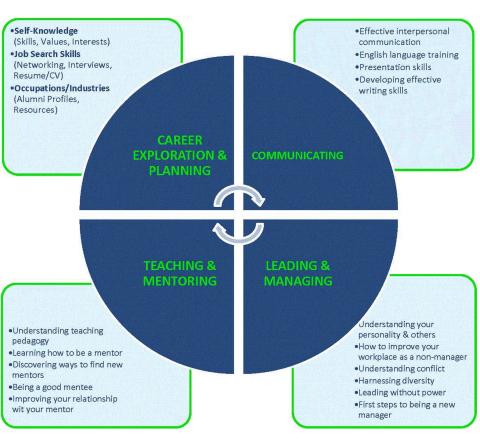In 2013, international fellows came to the NIH from 93 countries; if you just relocated to the NIH from abroad, it can be a challenge to adjust to a new culture, new city, and a new lab.



You have probably heard the word “mentor” many times and how important a mentor can be for your career, but how can you identify suitable mentors for you? This is a question that many trainees ask themselves. Identifying a good mentor is not an easy task and it takes time and dedication.
Post written by Lori M. Conlan, Director of the Postdoc Office and the Career Services Center at the OITE This week I had lunch with the first mentor I had outside of the lab environment. In 2006, I had just left my postdoc to join a non-profit in Manhattan—the New York Academy of Sciences. I knew I could do the job running a career development program for graduate students and postdocs, but I was clueless about how life worked in an office. I started on a Tuesday, and by Friday I was sent off on my first business trip to Miami.
Post written by Sharon Milgram, Director of The Office of Intramural Training & Education. Science careers, at or away from the bench, require us to be life-long learners. To be successful, we are always learning – and teaching – new skills. While many of us enjoy this, it also comes with frustrations and challenges. In considering how we learn, I was struck by the excellent and concise explanation of the stages we typically go through as we learn and develop new skills.
There are many important aspects to having a successful career. One aspect often overlooked is making sure you have a community of peers. Communities provide more than just support for everyday life and challenges. They are great for building networks, developing co-mentoring relationships and gaining leadership experience. Coming to a large campus, like the NIH or a college campus, can feel like you have landed on a different planet. Everything is so different.
Post written by Sharon Milgram, Director of The Office of Intramural Training & Education.
Do you need to find a job in a geographically limited area far from your current location? Maybe your significant other just found a dream job, or maybe you just always wanted to live in Seattle, WA – whatever the reason, a remote and geographically limited job search poses a distinct set of challenges that require some strategizing to overcome. Here are a few thoughts that may help from a person who recently was searching for a job in Dallas, TX, while living in Bethesda, MD. These tips are useful in any job search, but particularly for conducting a remote search.
Research is your top priority as a graduate student or postdoc.
You have a new job! (or hope to soon). Here are some tips to make the transition to your new position successful and as easy as possible.
First, remember that transitions are always tough. While you are likely very excited about a new position, the transition can be overwhelming, especially if you are moving to a new location. You are closing out a chapter in your life that has likely lasted between two and five years (or more). You are saying goodbye to friends and colleagues and disrupting an established routine—so some anxiety is totally normal.

